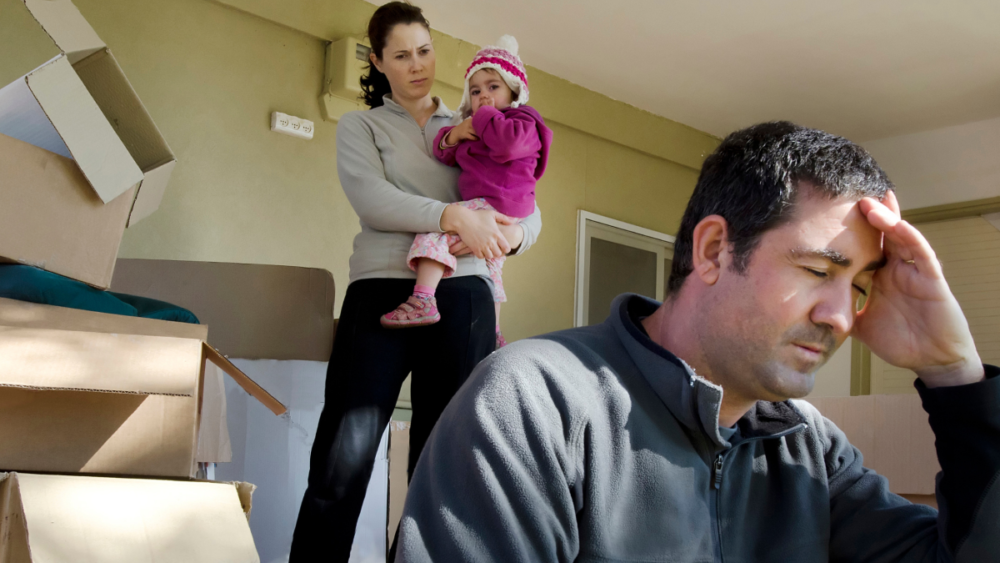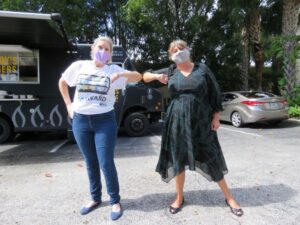
The Centers for Disease Control and Prevention’s (CDC) federal eviction moratorium was recently extended to June 30, 2021, sparing millions from eviction.
When the moratorium eventually expires, the anticipated eviction crisis is expected to hit home here in Palm Beach County, putting thousands of renters on the brink of homelessness. With an eviction on their record, many will find it extremely difficult to secure an apartment in the future.
Although there are emergency rental assistance programs available through Palm Beach County and local nonprofits, the need has far exceeded these programs’ capacity to respond, leaving many unable to access assistance before an eviction is filed.

Denita Jones of the Legal Aid Society of Palm Beach County.
That’s why Adopt-A-Family contacted Legal Aid Staff Attorney Denita Jones, who provided useful information for families facing eviction because of unpaid rent.
If this sounds like your situation, here’s some advice Jones had to offer:
1. Respond to Your Eviction Notice
If you receive an eviction summons or complaint, you have five (5) business days to respond. It is very important that you submit a written response, also known as an “Answer”, within those five days.
2. When You File a Response, Pay Toward What You Owe If You Can
If you are able, deposit your past due rent in the court registry.
3. What to Do If You Cannot Pay Back Rent
File a Motion to Determine Rent and attach a signed copy of the CDC declaration, which shows you are protected under the CDC order. It temporarily halts residential evictions for non-payment of rent. The document will also demonstrate that you are not able to pay back the full amount owed.
4. Every Individual on the Lease Agreement Must Sign a CDC Declaration
Each adult on the lease should sign and deliver separate CDC declarations. In circumstances where individuals in a household (i.e. married people) file a joint tax return, it may be appropriate for one member of the residence to provide an executed declaration on behalf of other adult residents.
The CDC declaration must then be provided to your landlord, owner of the residential property where you live, or another person who has a right to have you evicted or removed from your residence.
5. If Your Landlord has already Begun Eviction Proceedings, Submit a Copy of the Required Paperwork to the Court in addition to providing a copy to your landlord.
After everyone on the lease agreement has signed the CDC Declaration, it should be filed with the court, along with the Answer document and Motion to Determine Rent.
6. Keep an Open Line of Communication with Your Landlord
It’s important to communicate with your landlord and make back payments whenever possible. When the eviction moratorium expires, you will still will responsible for paying back the rent owed.
7. Reach Out to Legal Aid for Advice
Legal Aid of Palm Beach County’s goal is to offer assistance to as many people as possible, even if it’s just legal advice. Legal Aid can assist individuals in applying to halt an eviction and/or provide them referrals to useful resources. For more information, contact Legal Aid at 561-655-8944 or complete the online intake form.
8. Rental Assistance is Available for Palm Beach County Residents
Residents can apply for Palm Beach County’s Emergency Rental Assistance (ERA) program here:: https://www.rentalassistancepbc.org/. Adopt-A-Family’s Housing Stabilization Program also offers emergency rental assistance. For more information, call (561) 253-1361 or visit https://www.aafpbc.org/housing-stabilization-program/.
9. Rental Assistance is Available for Undocumented, At-Risk Renters
Legal Aid of Palm Beach County has funds available for individuals whose legal status prevents them from obtaining rental assistance from Palm Beach County. For more information, contact Legal Aid at 561-655-8944.
10. You Are Not Alone
Help is available. There is legal advice and access to assistance. Organizations like Legal Aid of Palm Beach County and Adopt-A-Family are here to help.
Many thanks to Denita Jones of the Legal Aid Society of Palm Beach County for providing this helpful information.

By Abbey Hartman, Shelter Services Coordinator for Adopt-A-Family
The United Way of Palm Beach County performs important work in our community and supports organizations that do the same, including Adopt-A-Family. The agencies funded by the United Way form a collaborative network to serve all residents of Palm Beach County. Adopt-A-Family regularly partners with fellow United Way-funded agencies to ensure that the families we serve have access to services that will aid them on the path to stability and self-sufficiency.
Here is a snapshot of some of the incredible organizations that regularly support families served by Adopt-A-Family:
AVDA and YWCA Harmony House provide a safe, secure environment for families that have endured domestic violence while they await shelter through Adopt-A-Family.
Boys and Girls Club of Palm Beach County cares for children, providing meals and child care up until 8 p.m.
Clinics Can Help gives out walkers and medical supplies at low to no cost for people who cannot afford equipment.
Community Partners offers therapy, housing, and case management to children and parents in our community.

Kids at a CROS Ministries summer camp packed up bags of food for AAF residents.
CROS Ministries provides food assistance to low-income families through food pantries, meal sites, and gleaning.
Families First helps Adopt-A-Family secure housing opportunities for people with barriers who may need more support.
Gulfstream Goodwill provides shelter to pregnant youth until birth.
Healthy Mothers Healthy Babies Coalition of Palm Beach County, Inc. offers diapers, formula, and clothing to needy families.
The Palm Beach County Food Bank provides Program REACH fresh vegetables, fruit, and food for the food pantry.
The Legal Aid Society of Palm Beach County provides free legal services to low-income families and nonprofits.
The Lord’s Place offers job training, meals, SOAR assistance, and housing to families.
Urban League of Palm Beach County provides job coaching and placement to families.
Vita Nova helps young people with life skills training, job search/assistance, mental health services, and so much more.
211 Palm Beach is the number one referral source for homeless services.
Out of gratitude for the support of agencies and funders throughout Palm Beach County, Adopt-A-Family’s 2020 United Way Campaign was “Pay it Forward.” Adopt-A-Family’s staff certainly lived up to that credo during the campaign! One hundred percent of the staff pledged donations to the United Way of Palm Beach County, and the total pledged surpassed last year’s total. Those donations will help support United Way-funded organizations that do impactful work in our community. Adopt-A-Family is grateful to Pay It Forward now and every day! The work we all do collectively has such an impact on our families, children, and the community!
Abbey Hartman has been working in homeless services for 11 years in various roles, including housing, youth services, veteran support, and now families. This month marks her four-year anniversary with Adopt-A-Family. Abbey enjoys going to the beach, playing with her son, reading, and spending time with family.